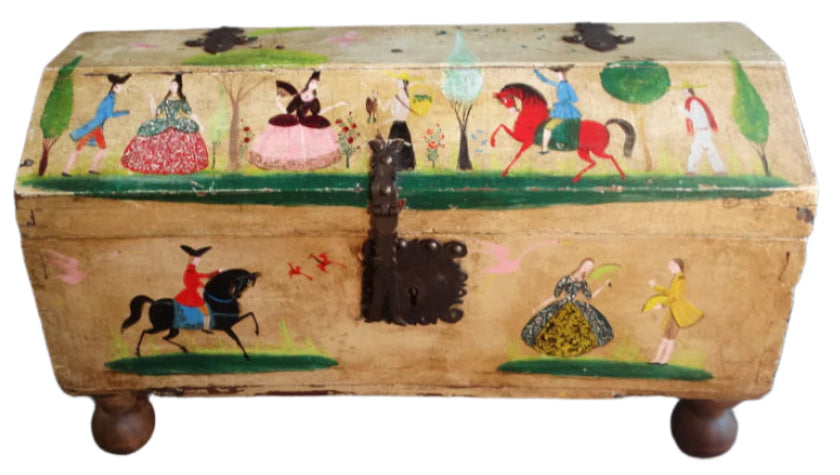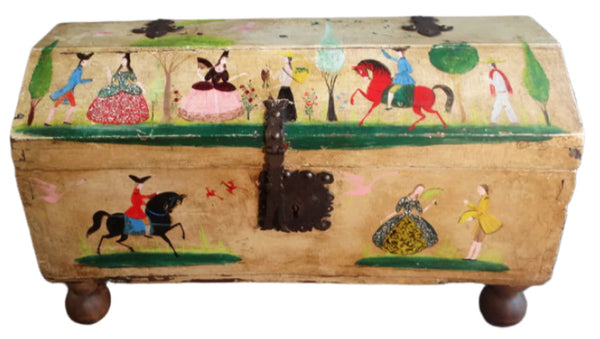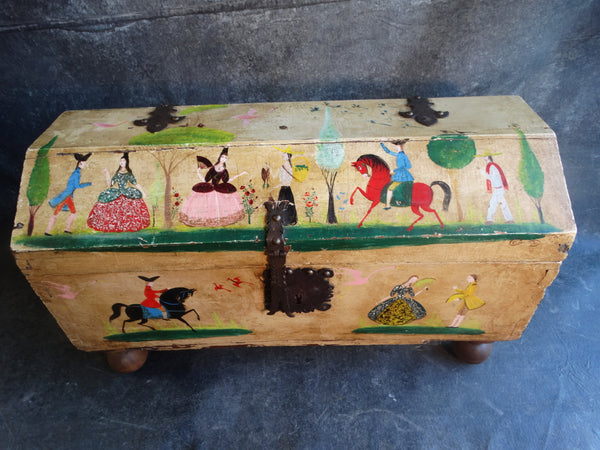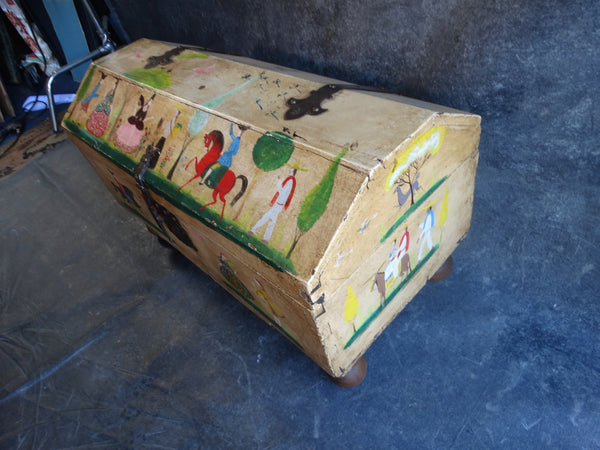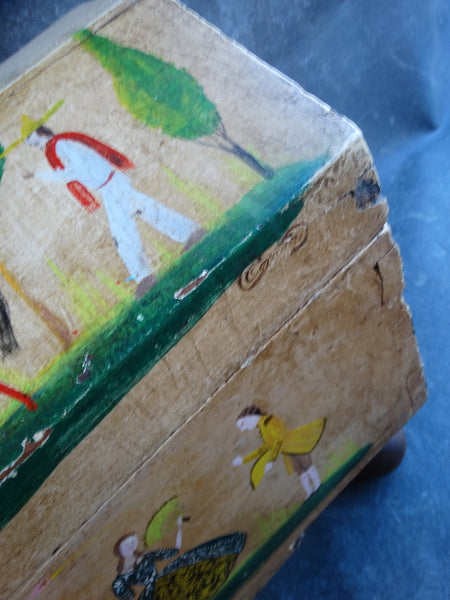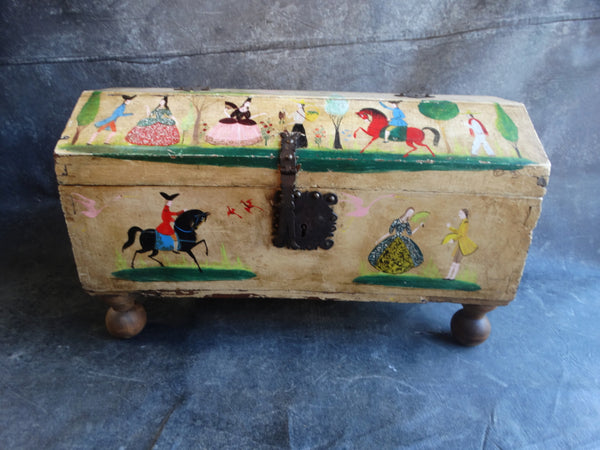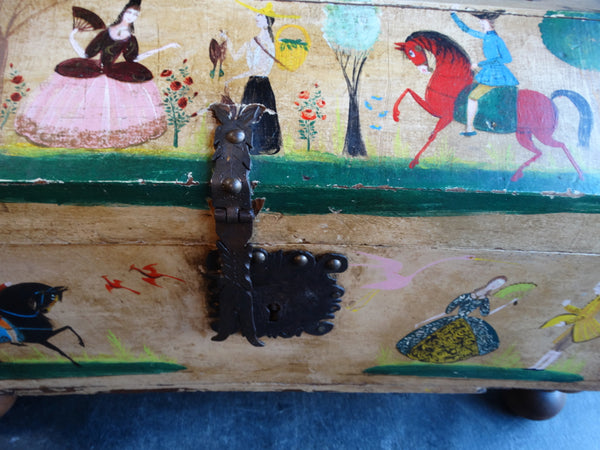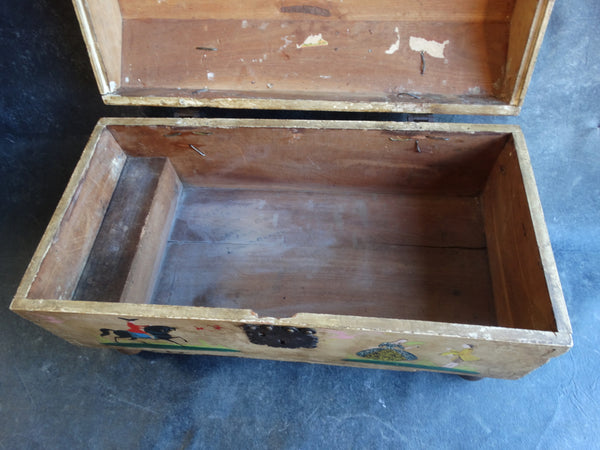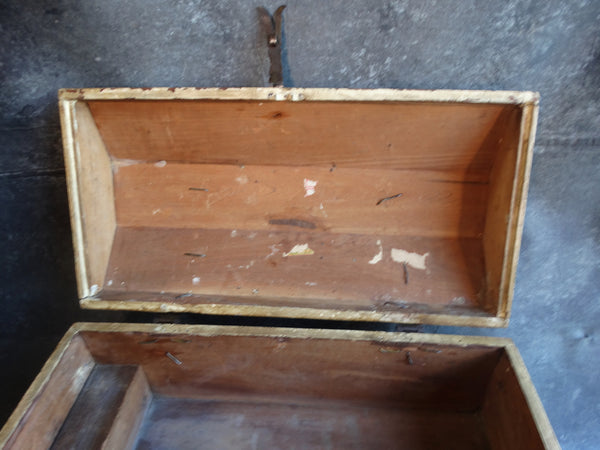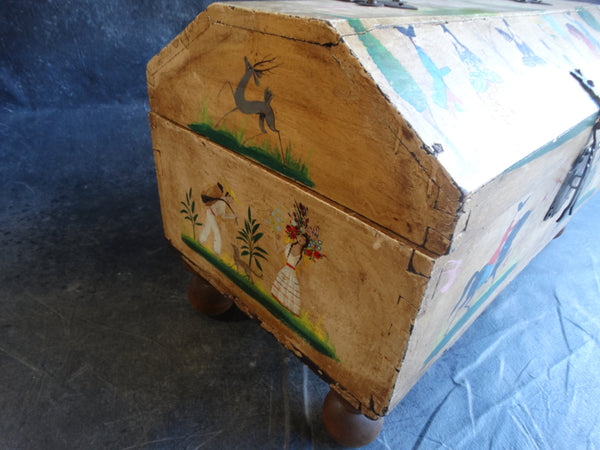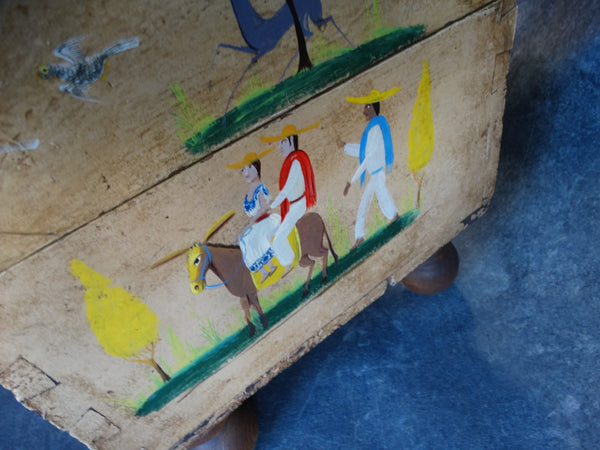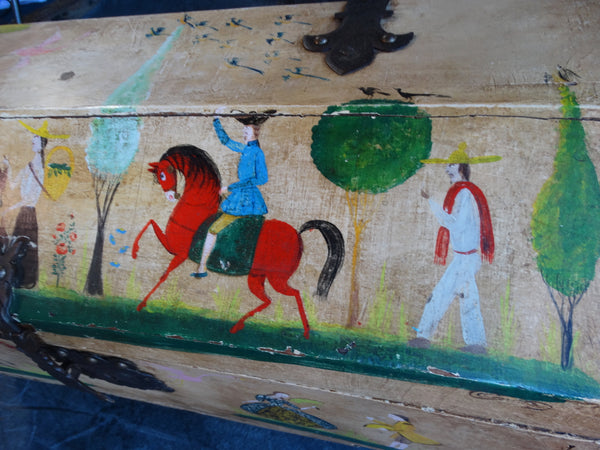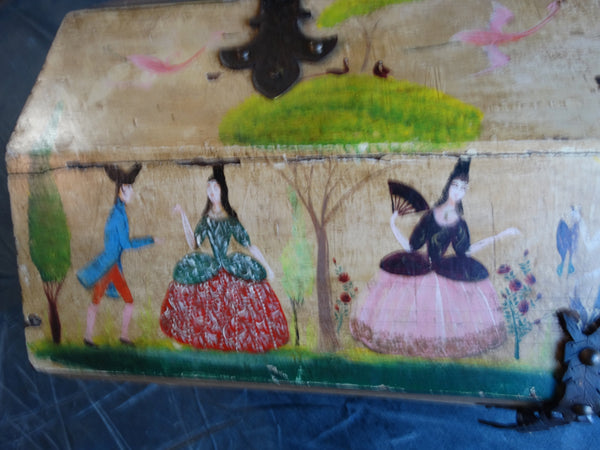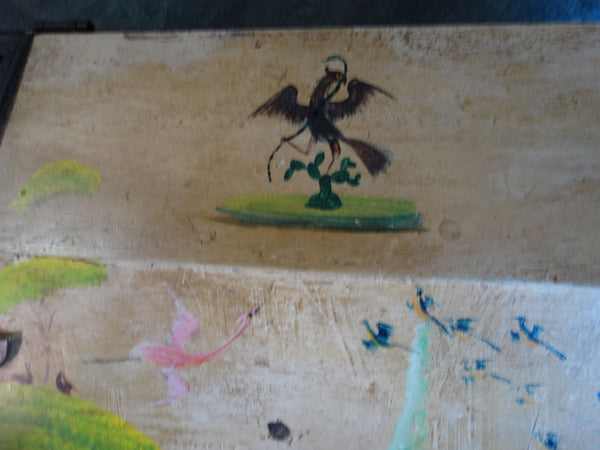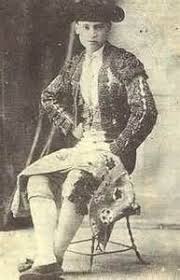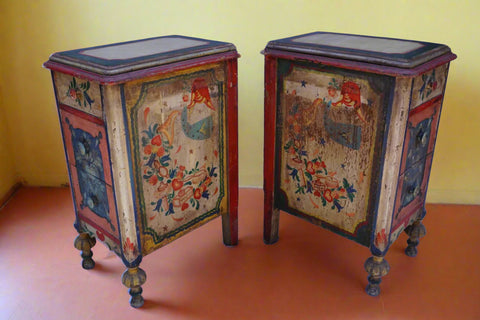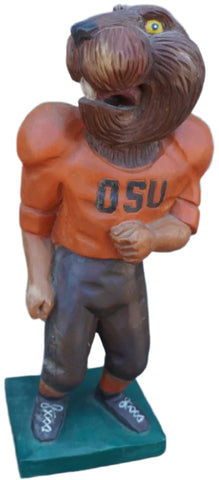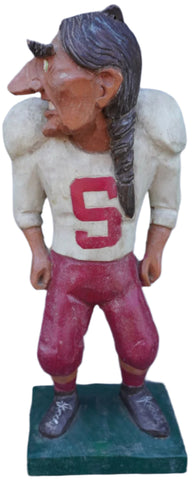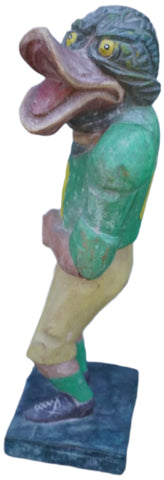Salvador Corona - 18th Century Trunk painted by the artist 1930-40 F2348
A spectacular early example of folk-artist Salvador Corona's unique style. Belonging to the earliest period of his mature work (1930-40) when he would repurpose and decorate old 18th century pieces of furniture such as this trunk. Acquired from a private collection in Arizona. One cannot help but enter his engaging and delicate dream world, every figure full of life, animal and human.
The trunk measures 32" long x 16" wide and 19" high.
Please contact us to arrange special shipping, local delivery or pick up at the warehouse.
Salvador Corona (1895–1990) was a Mexican-American bullfighter and artist who created an iconic folk-art style of figure and pastoral painting on everyday objects. The style is characterized by colorful Mexican scenes on a white background. The style was emulated and copied becoming a ubiquitous to the southwest and broader towns tourist trade in the 1960s.
Salvador Corona was born on his family's ranch Hacienda Mideras in the Mexican state of Chihuahua. Corona’s family moved to Mexico City in 1903 when he was 8. He attended the New English College in Mexico and then crossed into a career in bull fighting entering the ring for the first time in 1913. In 1919 in Guadalajara he was gored and turned to painting. He was given his first painting lessons by fellow bullfighter Jose Jimenez.
His traditional self-developed folk art style images depicted pastoral colorful scenes of 18th Century Mexico painted on white backgrounds.
His work can be divided into three categories: a vice-regal era with European and Creole noblemen mixed with Indians; stylized landscapes of Patscuaro, Acapulco or the Canal of Santa Anita; and his iconographic Mexican Virgins painted in tones of blue, purple, and gold often encrusted with mother of pearl.
Corona moved to Tucson in 1950. His studio and residence was located at 1701 East Speedway Boulevard, and then 902 North 4th Avenue overlooking Catalina Park.
While in Tucson his work was sold exclusively through Frank Patania Thunderbird shops located next to the Fox Theatre (Tucson, Arizona) and in Josias Joesler designed Broadway Village. His work was owned by U.S. President Franklin D. Roosevelt.

